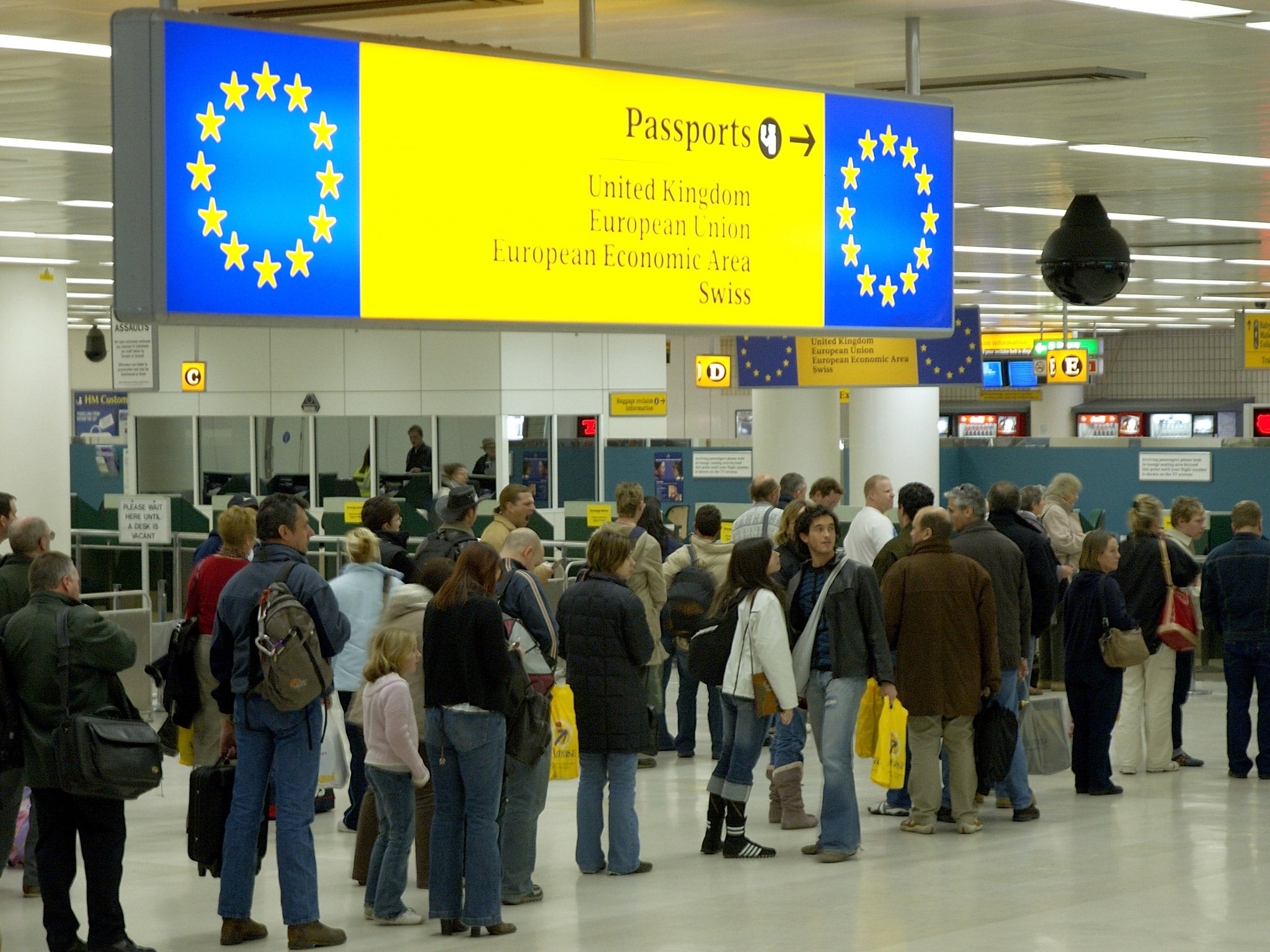Foreign-born men more likely to be in work than British counterparts - and migrant workers earn UK £7bn annual boost
Male migrants in the UK have had higher levels of employment than 'native-born men' from 2007

Migrant workers are providing an £7bn annual boost to the UK economy, reveals research by a leading international think-tank.
The Organisation for Economic Co-operation and Development suggested Britain was near the top of a worldwide league table of nations whose economies benefit significantly from immigration.
It also found employment rates among migrant men were higher than among their British-born counterparts, but that a higher proportion of migrant women were unemployed than British women.
The figures for the contribution to the economy are calculated by subtracting an estimate for migrants’ demand on services such as hospitals and schools from the amount they pay in taxes.
The OECD calculated it to be worth 0.46 per cent of Britain’s gross domestic product, equivalent to more than £7bn last year.
Britain is benefitting more financially from immigration than many other major western nations including Germany, France, the United States and Australia.
The OECD said annual immigration rates to Britain were slightly below the average for countries in the western world.
The size of Britain’s foreign-born population (12 per cent) is also below average and compares to 13 per cent in the United States and 13.1 per cent in Germany.
It found 83.8 per cent of foreign-born men were in work, slightly higher than the proportion of British-born men. The figure for migrant employment rates has risen from 78.5 per cent ten years ago.
Sarah Mulley, associate director for migration at the Institute for Public Policy Research, said: “Migrants tend to be younger and they tend to be in employment. We also have a system that selects those most likely to be highly-paid.”
Don Flynn, director of Migrants’ Rights Network, said: “The OECD findings should allay fears that migration has unacceptable negative impacts on the economies of developed countries.”
The OECD, which analysed the immigration patterns in 24 nations, also found a leap in the numbers of people living in countries hardest hit by the debt crisis who were seeking to escape harsh austerity measures and long dole queues.
From 2009 to 2011, there was a 45 per cent increase in people leaving struggling eurozone nations such as Spain, Portugal and Greece and heading elsewhere in Europe, in particular to Britain and Germany.
“This is remarkable,” said Angel Gurria, secretary general of the OECD. “Now we are talking about migrants from other OECD countries leaving home for a better life.”
While economic woes mean Europeans are now much more likely to up sticks and pursue work in other countries, migrants and asylum seekers living in the crisis-hit countries are facing increasing discrimination. Greece in particular has seen a rise attacks against migrants, and the ultra-nationalist Golden Dawn party now holds seats in parliament.
Cecilia Malmstrom, the EU Home Affairs Commissioner, said immigration issues give "fertile ground for xenophobic and populist movements”.
She said: “Shrinking economic possibilities foster hostility towards migrants regardless of their situation and some political groups are eager to exploit this.”
Mr Gurria said mainstream parties had a responsibility not to play on populist anti-immigration sentiment “even perhaps at the cost of some votes”.
He said: “What you can't do is welcome the migrants then denounce them as a burden when the times get tough. What you can’t do is say they are welcome to make a contribution and then forget about them when they have been contributing to the coffers.”
Carlos Vargas-Silva, senior researcher at the Migration Observatory at Oxford University, said: “It is important to recognise migrants are not one homogenous group and that different sorts of migrants have different impacts on government finances.”
Join our commenting forum
Join thought-provoking conversations, follow other Independent readers and see their replies
Comments